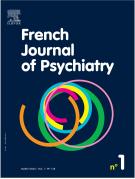Who is doing what in emergency departments to ensure memory recovery after self-poisoning? A survey of university hospital centers in France - 10/09/21
 , Aurélie Giron b, Christophe Arbus a, b
, Aurélie Giron b, Christophe Arbus a, bHighlights |
• | Deliberate self-poisoning (DSP) with a drug constitutes the majority of suicide attempts. |
• | Most ingested drugs in DSP are known to lead to cognitive impairment. |
• | In 2006, an expert from the American College of Emergency Physicians Clinical Policies (Subcommittee on Critical Issues in the Diagnosis and Management of the Adult Psychiatric Patient in the Emergency Department) recommended that, in order to achieve adherence to the care instructions provided, cognitive recuperation should have occurred before a psychiatric assessment is conducted. |
• | We investigate how the clinicians perform this cognitive evaluation in their current practice in psychiatric emergency department of University Hospital in France. |
Summary |
Introduction |
Suicide prevention is a critical issue, and is related to the care and follow-up provided after a suicide attempt. This treatment is, however, linked to a patient's ability to memorize the information given to them in the emergency department, even though their memory may be impaired due to the drugs ingested after a self-poisoning suicide attempt. There is therefore a recommendation that a patient's cognitive-function should be evaluated in these circumstances. The aim of this study was to examine how this advice is applied in practice.
Methods |
We performed a telephone survey of the 30 teaching hospitals in France. The psychiatric team at each center was asked about the cognitive tests or other methods they employed to evaluate a patient's cognitive-function. We also examined the other markers used.
Results |
Only one of the hospitals contacted used a cognitive test. The others determined cognitive recuperation based on factors such as clinical opinion, vigilance or the plasma half-life of the drugs ingested.
Conclusion |
There was no consensus on whether and which cognitive tests should be used following a self-poisoning suicide attempt. Indeed, these tests were very rarely employed. Most of the hospitals contacted used clinical markers, even though these have major limitations. The issue of conducting cognitive evaluations after deliberate self-poisoning must therefore be addressed in order to harmonize clinical practice throughout the country.
Le texte complet de cet article est disponible en PDF.Keywords : Cognitive assessment, Deliberate self-poisoning, Current practice
Plan
Vol 2
P. 59-64 - décembre 2020 Retour au numéroBienvenue sur EM-consulte, la référence des professionnels de santé.
L’accès au texte intégral de cet article nécessite un abonnement.
Déjà abonné à cette revue ?

